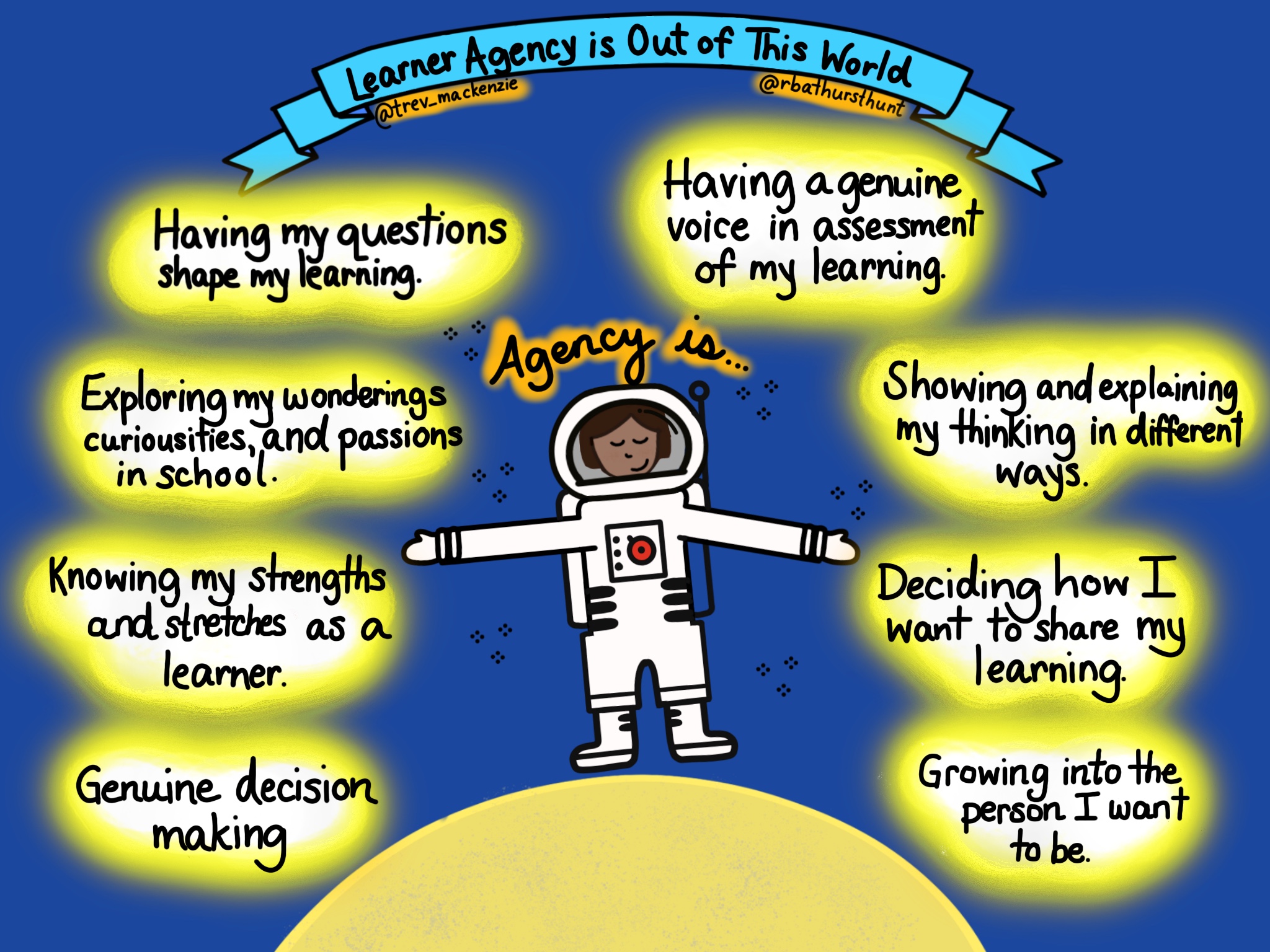Agency by definition is the power to act. But too often this is misconstrued as a free-for-all. We all operate within constraints, but we don’t have to do things the same way to reach the intended learning targets or goals. Educators have certain expectations they are accountable for meeting and there’s a variety of content and skills that we want students to learn within the content. There can still be opportunities for purposeful learning where young people are engaged and driving their own learning process based on shared goals and expectations. In order to create opportunities for learners to seek information and learn to learn there are infinite examples of how you can create more opportunities for learner agency in the classroom.
Here are a few that I shared in Evolving Education:
- If you want all students to understand how to identify the main idea without using a basal reader or worksheet from the curriculum, ask students to pick their favorite picture book (at any grade) or an online article and identify the main idea. If your goal is to assess the skill, let them have voice and choice in the process.
- In math, instead of teaching one way to solve a problem and having your students practice it forty times, let them try different strategies on their own (even if they don’t end up working), share their strategies and think with one another, and determine the best way to solve the problem.
- If you are working on argumentative writing, instead of simply assigning a five-paragraph essay, give students a choice on the topic or problems they care about and have them create a video, website, blog, or essay to convey their ideas and construct their argument.
- If you are analyzing an event in history, instead of telling students what happened or reading it from a textbook, provide a variety of articles or primary sources or ask them to do some research and find out what different perspectives exist so they can share what they learned and discuss the event’s implications on today’s world.
Teachers who provide exposure, guidance, encouragement, checkpoints, and ongoing feedback are critical to the learning process.
From Compliance to Agency
When you are so used to a compliance-driven model, it is often hard to imagine that kids (and all people) can function outside of a control and command environment because we are so used to how people operate in our existing systems. When I bring educators to visit the schools I have shared with you throughout this book, they are always struck by the culture of care and agency rather than control. High school students have meetings off-campus, connect with mentors, and work on projects in hospitals and boardrooms. Students are using tools, building houses, writing code, and starting movements in their communities and beyond. Early elementary school kids are allowed to choose seats, get a drink of water, and even move freely in and out of the classroom. Kids are celebrated and coached to make good choices and are not scolded, trained, and managed.
When you see a student eating, listening to music, or talking to a friend, it doesn’t have to be an affront to the teacher or a challenge to authority. It’s just kids being human. The focus is on learning and what people need, not a dress code, infractions, and educators being in control. And when kids feel trusted, they don’t test the rules as much because they don’t need to. It is so clear that they feel valued and empowered, and frankly, they get to spend more time on learning, which is the goal!



0 Comments